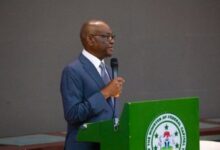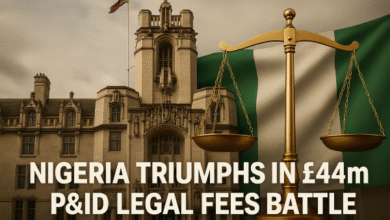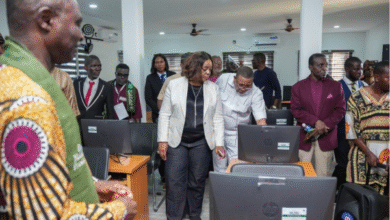Lagos Police Warn Sowore: “Stay Away from Lagos” Amid Planned Demolition Protests

The Lagos State Police Command has issued a stern warning to activist Omoyele Sowore and others against mobilising protests over the recent demolitions in Oworonshoki and other parts of Lagos.
Commissioner of Police, Mr. Olohundare Jimoh, delivered the warning on Monday while briefing journalists at the Iyana-Oworo axis near the Third Mainland Bridge, one of Nigeria’s busiest transport corridors.
Massive Police Deployment Across Lagos
CP Jimoh disclosed that the command had deployed officers to strategic locations across the city — including Third Mainland Bridge, Ojota, Maryland, Gani Fawehinmi Park, Gbagada, Bariga, and Lekki Toll Gate — to prevent any planned demonstrations against the recent Oworonshoki demolition that could lead to public disorder or traffic paralysis.
“We want to warn Sowore and his group to stay away from Lagos or face the full weight of the law. The Third Mainland Bridge is too vital to the Nigerian economy and the safety of lives and property for anyone to think of blocking it,” he said.
According to him, the police will not allow any individual or group to block major highways, obstruct movement, or disrupt the peace currently being enjoyed in Lagos.
“Every day, thousands of Lagosians depend on that bridge for work, business, and medical emergencies. It must not be turned into a theatre of chaos,” the police chief added.
Protests Must Follow Due Process — Police Chief
While acknowledging the constitutional right to peaceful assembly and expression, CP Jimoh emphasised that protests must follow due process and must not infringe on the rights of others.
“Anyone who wishes to organise a peaceful protest must follow laid-down procedures. What we’ve seen recently are not protests but attempts to cause unrest. Anyone caught will face the full weight of the law,” he warned.
The Commissioner reiterated that the command’s priority remains to protect lives, property, and economic activity across the state, adding that law enforcement officers have been instructed to maintain professionalism and restraint while ensuring public order.
Police Defend Oworonshoki Demolition Exercise
Responding to questions about the controversial Oworonshoki demolition, CP Jimoh defended the Lagos State Government’s action, insisting that the cleared structures were illegal and often used as criminal hideouts.
“Those areas were being used by criminals to launch attacks on innocent citizens. The government is justified in clearing them. Genuine residents have been compensated, and this was documented in the media,” he said.
He accused certain groups of attempting to exploit the situation for political or criminal purposes, warning that such actions would not be tolerated.
“Anyone hiding under activism to cause chaos is complicit in conspiracy to commit crime. We will not permit that,” he declared.
Assurance to Law-Abiding Citizens
The Commissioner urged Lagos residents to remain calm, assuring them of adequate police protection and uninterrupted movement throughout the state.
“Every Nigerian is entitled to safety and freedom of movement. We will continue to ensure Lagos remains peaceful — but criminality under the guise of protest will not be tolerated,” he said.
CP Jimoh reiterated that the police remain committed to dialogue, community engagement, and lawful protest, but warned that the command will act decisively against anyone attempting to undermine public peace or threaten national infrastructure.
BRANDECONOMY INSIGHT: Security, Governance & Citizen Trust
The Lagos demolition protests — and the police’s firm response — underscore a growing tension between civic expression and state authority in Nigeria’s megacity.
While authorities argue the demolitions are part of a legitimate urban renewal effort, activists and human rights advocates insist that displacement without dialogue or due process undermines trust and deepens social inequity.
Experts note that balancing law enforcement with empathy and transparency will be crucial as Lagos navigates its urban transformation agenda. A city of over 20 million people requires not only security — but also inclusive governance that keeps citizens at the heart of development.











